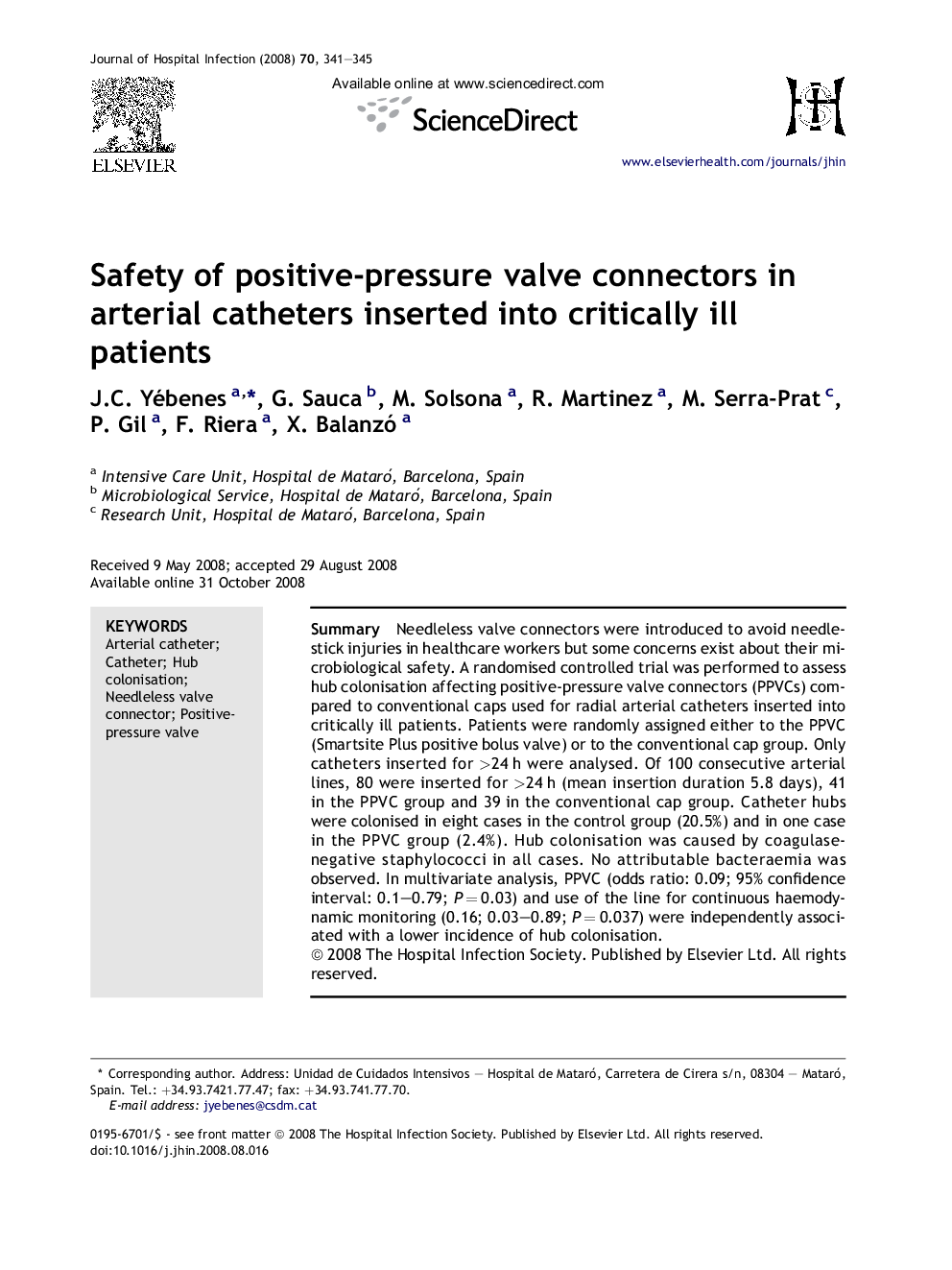| Article ID | Journal | Published Year | Pages | File Type |
|---|---|---|---|---|
| 3372573 | Journal of Hospital Infection | 2008 | 5 Pages |
SummaryNeedleless valve connectors were introduced to avoid needlestick injuries in healthcare workers but some concerns exist about their microbiological safety. A randomised controlled trial was performed to assess hub colonisation affecting positive-pressure valve connectors (PPVCs) compared to conventional caps used for radial arterial catheters inserted into critically ill patients. Patients were randomly assigned either to the PPVC (Smartsite Plus positive bolus valve) or to the conventional cap group. Only catheters inserted for >24 h were analysed. Of 100 consecutive arterial lines, 80 were inserted for >24 h (mean insertion duration 5.8 days), 41 in the PPVC group and 39 in the conventional cap group. Catheter hubs were colonised in eight cases in the control group (20.5%) and in one case in the PPVC group (2.4%). Hub colonisation was caused by coagulase-negative staphylococci in all cases. No attributable bacteraemia was observed. In multivariate analysis, PPVC (odds ratio: 0.09; 95% confidence interval: 0.1–0.79; P = 0.03) and use of the line for continuous haemodynamic monitoring (0.16; 0.03–0.89; P = 0.037) were independently associated with a lower incidence of hub colonisation.
